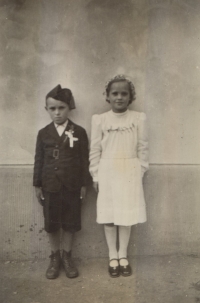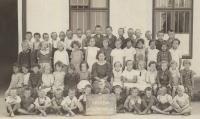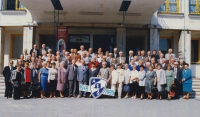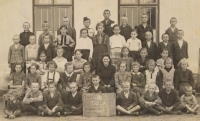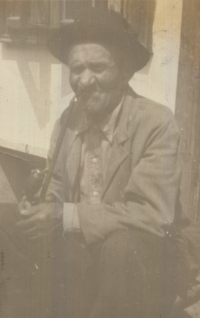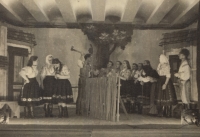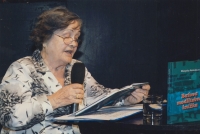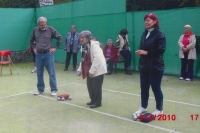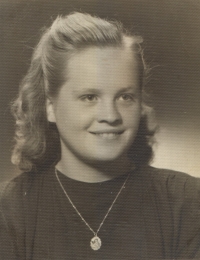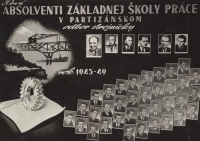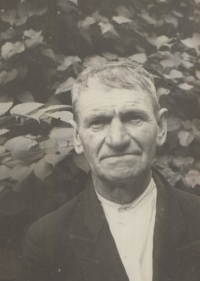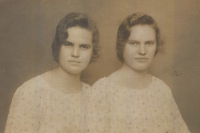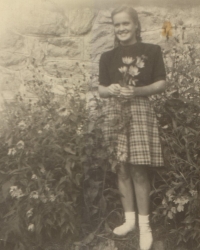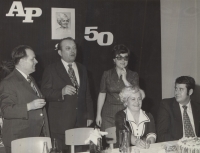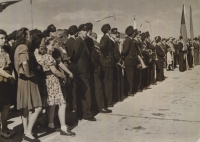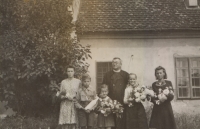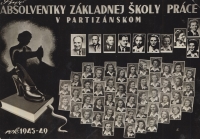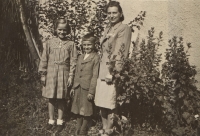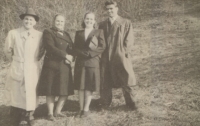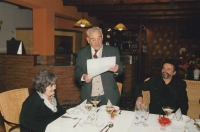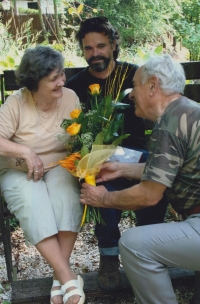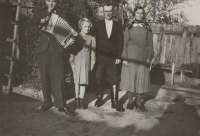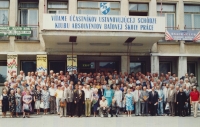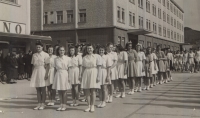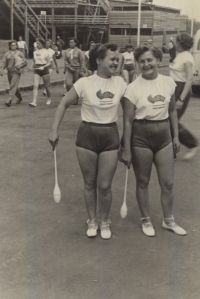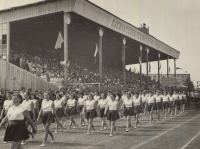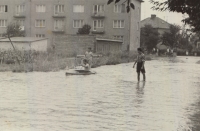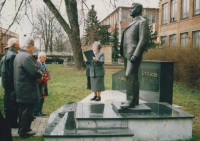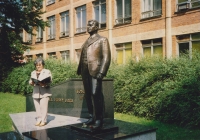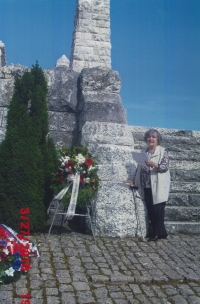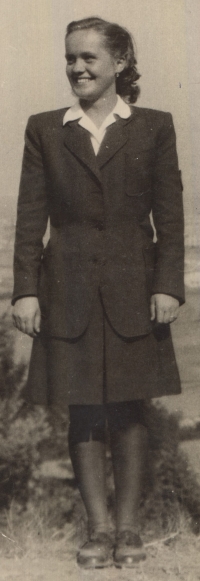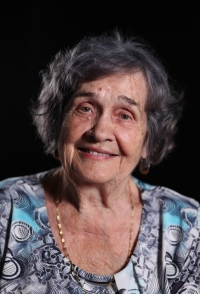The worst was when we were sitting on the train and the bombs came
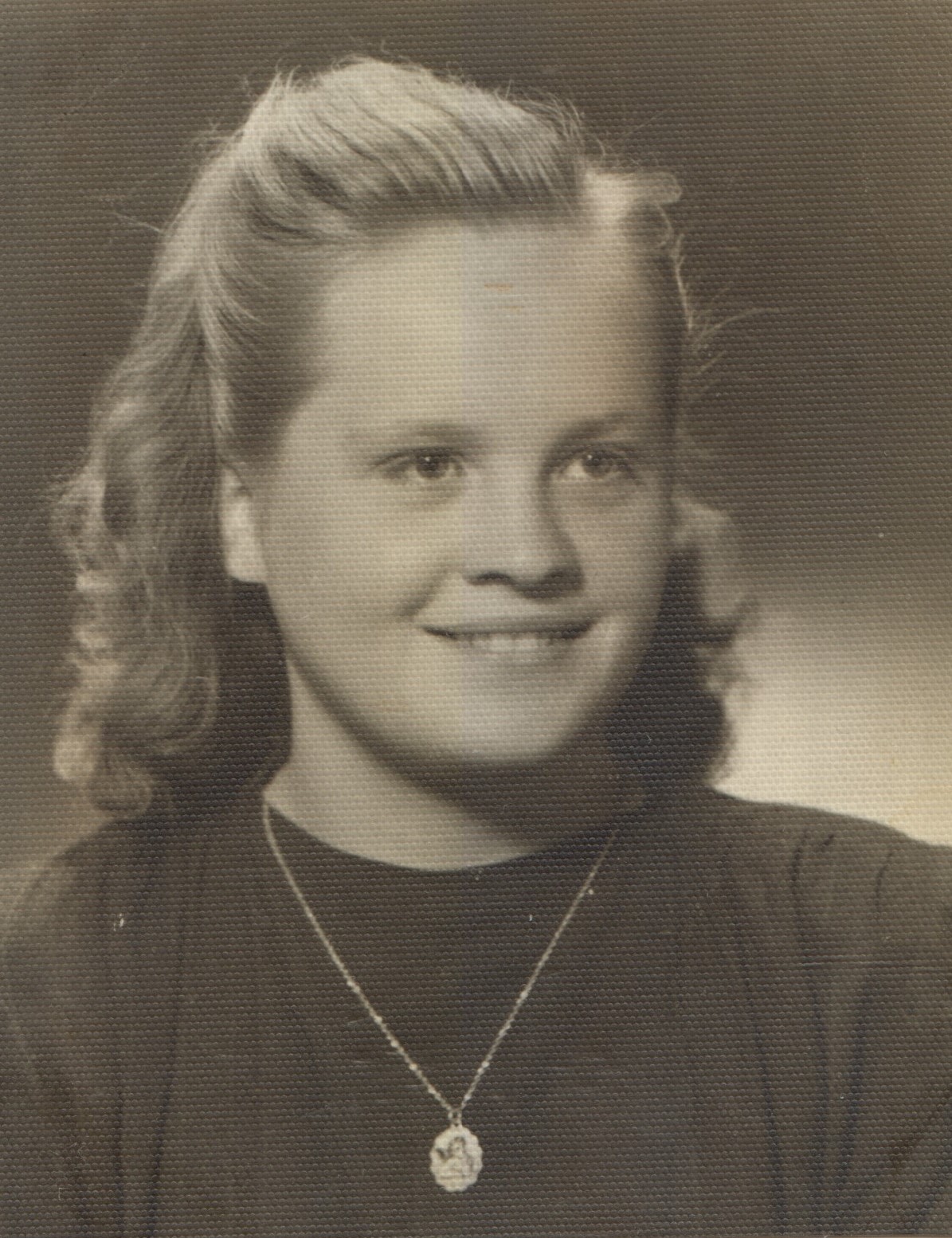
Download image
Anna Poláková, née Hajzochová, was born on 29 November 1930 in Hochšteten (since 1948 Vysoká pri Morave) in the Bratislava region. She attended primary school in Hochšteten from 1937. At the end of September 1938, her father Stefan enlisted as part of the general mobilization of the Czechoslovak Republic. In 1942, Anna Poláková started attending grammar school in Záhorská Ves. She commuted there by train and during her travels she repeatedly witnessed bombings. After the Second World War - at the end of August 1945 - she entered the Bata boarding school of labour in Batovany (today’s Partizánske). Immediately after the February 1948 coup, she joined the Communist Party of Czechoslovakia, where she remained until the Velvet Revolution. She successfully graduated from the Bata School of Labour in 1949 and then worked at the 29 August Works, the nationalised Bata factories. She remained an employee of the shoe factory until her retirement in 1989. At the time of the interview (2020) she lived in Partizánské.
